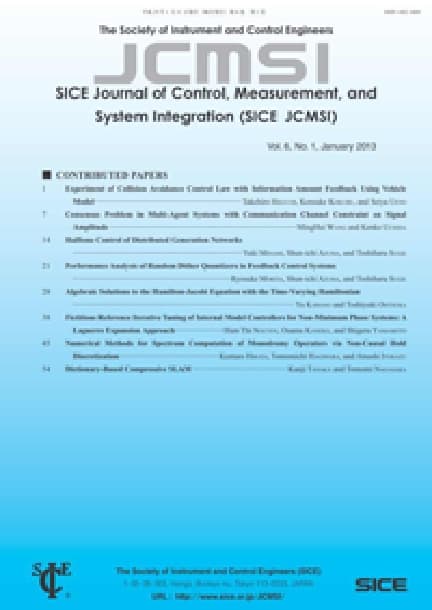Finite-Dimensional Adaptive H∞ Consensus Control for Infinite-Dimensional Systems
Yoshihiko MIYASATO
pp. 255-262
DOI:
10.9746/jcmsi.7.255Abstract
Design methodologies of finite-dimensional adaptive H∞ consensus control of multi-agent systems composed of a class of infinite-dimensional systems are provided in this paper. The proposed control schemes are derived as solutions of certain H∞ control problems, where the effects of neglected infinite-dimensional modes and the imperfect knowledge of the leader are regarded as external disturbances to the process. It is shown that the resulting control systems are robust to uncertain system parameters and that the desirable consensus tracking is achieved approximately via finite-dimensional adaptive control schemes.
Readers Who Read This Article Also Read
MATERIALS TRANSACTIONS Vol.58(2017), No.4
ISIJ International Vol.57(2017), No.1
Journal of the Japan Institute of Energy Vol.99(2020), No.12









